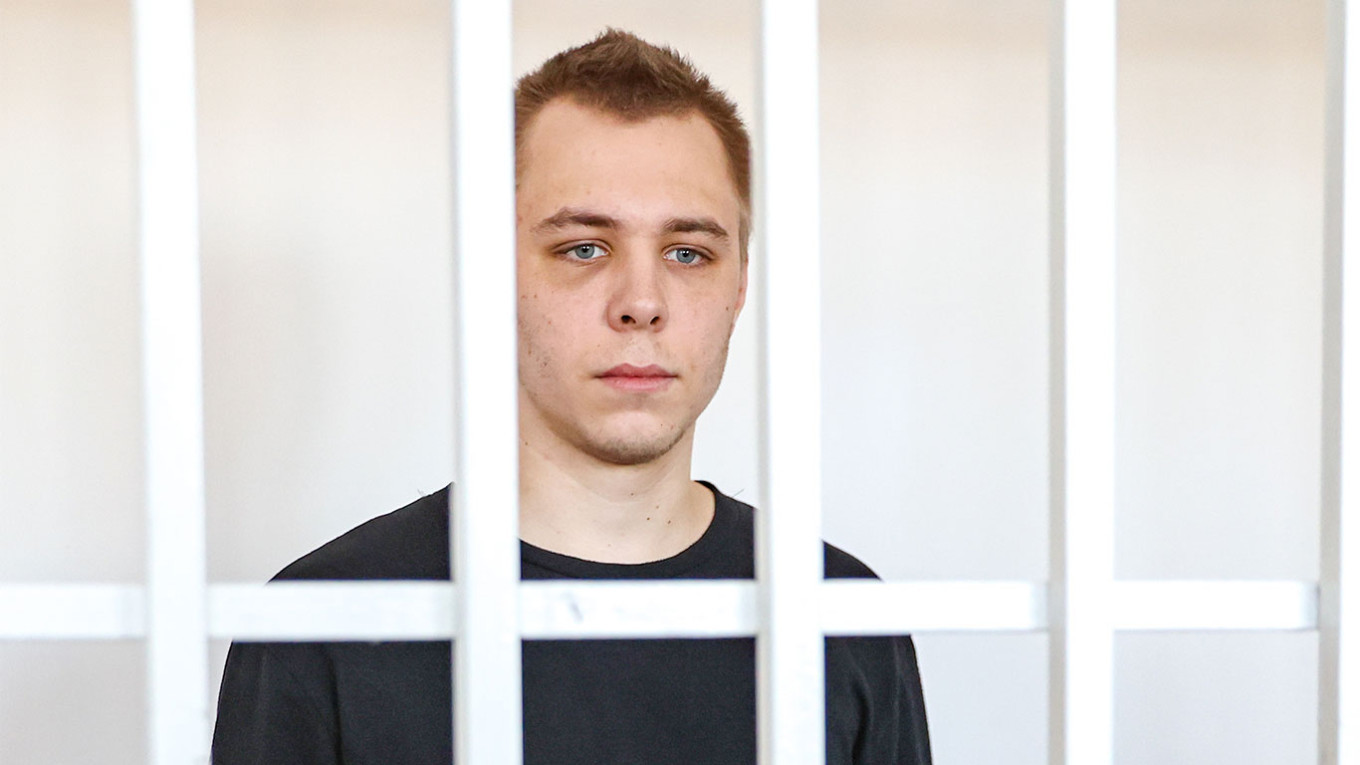 Nikita Zhuravel.
Yelena Afonina / TASS
Nikita Zhuravel.
Yelena Afonina / TASS
A young Russian man imprisoned in Chechnya for allegedly burning a Quran faces new charges of “high treason” that could see him sentenced to life in prison, the Russian Prosecutor General’s Office said Thursday.
Nikita Zhuravel, 20, is serving three-and-a-half years in Chechen prison for “offending religious believers” and “hooliganism” after he was accused of burning a Quran outside a mosque in his hometown of Volgograd.
The Volgograd regional Prosecutor’s Office has now approved charges of “high treason” against Zhuravel.
Investigators claim that Zhuravel “proactively offered cooperation” to a representative of Ukraine’s SBU security service in March 2023. He allegedly sent this representative videos of a train carrying military equipment and military aircraft as well as data on the movement of a Russian military service vehicle.
Under the new charges, Zhuravel could face a sentence of up to life imprisonment.
In August 2023, Zhuravel was assaulted in pre-trial detention by Adam Kadyrov, the then-15-year-old son of Chechen strongman Ramzan Kadyrov.
Adam Kadyrov escaped punishment for the incident and was even praised by his father and other Chechen officials. One lawmaker called Zhuravel “subhuman” and claimed that Kadyrov had “acted humanely” by letting him live.
Adam Kadyrov has been given numerous awards since the incident, including Chechnya’s highest award, the Order of Akhmat Kadyrov.
The Memorial human rights group has named Zhuravel a political prisoner.
A Message from The Moscow Times:
Dear readers,
We are facing unprecedented challenges. Russia's Prosecutor General's Office has designated The Moscow Times as an "undesirable" organization, criminalizing our work and putting our staff at risk of prosecution. This follows our earlier unjust labeling as a "foreign agent."
These actions are direct attempts to silence independent journalism in Russia. The authorities claim our work "discredits the decisions of the Russian leadership." We see things differently: we strive to provide accurate, unbiased reporting on Russia.
We, the journalists of The Moscow Times, refuse to be silenced. But to continue our work, we need your help.
Your support, no matter how small, makes a world of difference. If you can, please support us monthly starting from just $2. It's quick to set up, and every contribution makes a significant impact.
By supporting The Moscow Times, you're defending open, independent journalism in the face of repression. Thank you for standing with us.
Continue
![]()
Not ready to support today?
Remind me later.

 By The Moscow Times | Created at 2024-10-03 09:35:43 | Updated at 2024-10-04 23:29:13
1 day ago
By The Moscow Times | Created at 2024-10-03 09:35:43 | Updated at 2024-10-04 23:29:13
1 day ago



